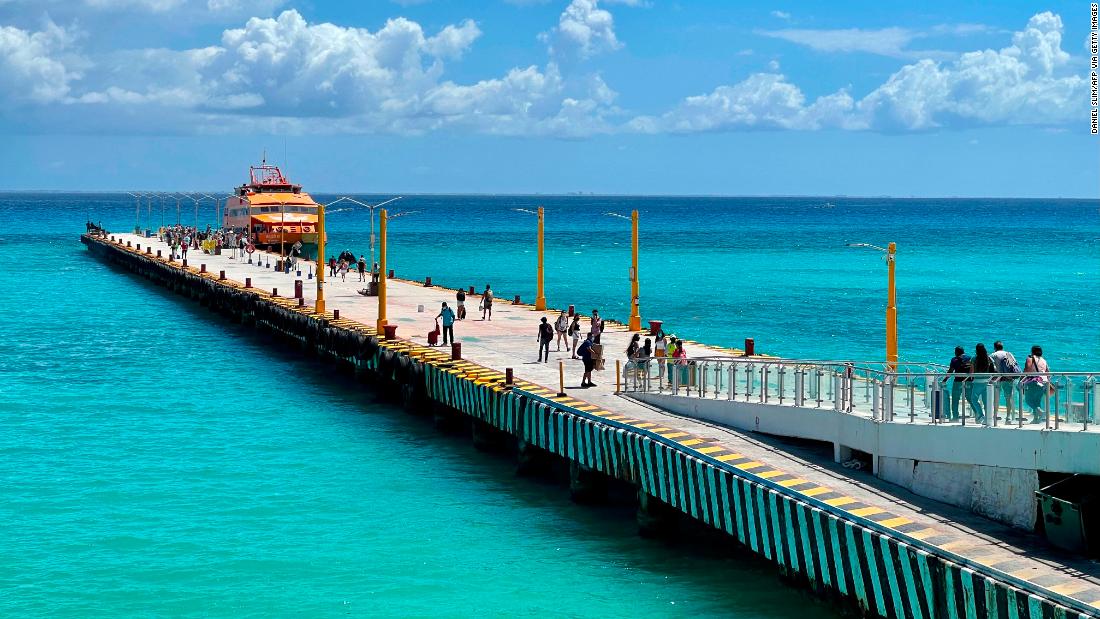(CNN) — Bathed in the faint light at the end of the once seemingly endless pandemic tunnel are visions of trips that reunite us with loved ones or take us to some blissfully new environment.
The US Centers for Disease Control and Prevention is still urging Americans — even those who have been vaccinated — not to travel, although a recent uptick in the number of passengers screened at US airport checkpoints indicates that people are traveling again in greater numbers.
So in many cases, we may be getting ahead of ourselves. But there is no doubt that interest in traveling and making future plans is picking up — raising lots of questions about how to safely navigate the new travel landscape.
Each country has its own tangle of rules and restrictions, so almost any trip will require deep pre-travel research.
Here’s what you need to consider as the pandemic eases:
Even if I can travel, should I?
Restrictions vary widely across the world, and for many people it is possible to travel domestically and internationally. Yet many public health officials would advise against it. As noted, the CDC recommends against travel right now.
“We are very worried about transmissible variants. A lot of them have come through our travel corridors, so we’re being extra cautious right now with travel,” CDC director Dr. Rochelle Walensky told CNN’s Anderson Cooper on March 11.
Walensky noted that every time travel escalates, a surge in coronavirus cases follows, citing Independence Day, Labor Day and the winter holiday season.

City officials in Fort Lauderdale, Florida, are anticipating a large spring break crowd this month.
Joe Raedle/Getty Images
Can I travel within my own country?
No matter where you are, it’s important to check regional and national websites and resources for guidance and restrictions on travel.
Do I need a negative Covid-19 test to travel internationally?
In a great many cases, yes, you will need a negative Covid-19 test before you travel to another country.

A traveler takes a photo of a Covid-19 testing sign at Los Angeles International Airport (LAX) in February 2021.
Patrick T. Fallon/AFP via Getty Images
Do I need a negative Covid-19 test to get into the United States?
The requirement includes US citizens and legal permanent residents returning to the United States.
Nonessential travel is restricted across US land borders with Canada and Mexico.

Travelers arrive at a hotel in Melbourne, Australia, to quarantine in December 2020.
WILLIAM WEST/AFP/Getty Images
Will I have to quarantine?
Some countries require all travelers to quarantine and have narrow restrictions on the acceptable reasons for entering at all. Others have no quarantine requirements (Mexico, for one) or are much less restrictive.
Many popular tourism destinations in the Caribbean and elsewhere have adopted testing rules that allow international arrivals to bypass quarantine requirements with negative results.
It’s important to check on specific requirements for your destination and for returning home.
Do I have to be vaccinated for international travel?
Some countries are allowing vaccinated travelers to bypass entry requirements they would otherwise need to comply with such as negative Covid-19 tests and quarantines. For example, travelers to Belize can bypass pre-departure Covid tests.
So while being vaccinated may not be a requirement to travel, proof of vaccination could significantly smooth the journey.
But being vaccinated is far from a carte blanche. Some countries are only welcoming vaccinated travelers from specific areas, such as the European Economic Area. And many haven’t yet made a decision on vaccinated visitors.
So even if you’re vaccinated, you’ll need to make sure your destination is welcoming inoculated travelers from your location.

International air travelers are likely to share health information in the future via new apps.
Daniel Slim/AFP via Getty Images
How do I share my test results and vaccination status with travel providers?
The confusing tangle of Covid regulations continues.
In the US, incoming travelers must present a “verifiable test result” to their airline. It “must be in the form of written documentation (paper or electronic copy) of a laboratory test result,” according to the CDC.
When possible, take both electronic and paper copies wherever you travel.
The process for sharing test results and vaccination status varies by destination and in some cases they are only valid in specific languages.
There are a number of digital applications — commonly referred to as “vaccine passports” or “vaccination certificates” — in development that aim to streamline health information so that it’s securely shareable across borders.

Tourists line up to board a boat in Playa del Carmen, Mexico on March 3, 2021. Mexico has some of the world’s loosest travel rules.
Daniel Slim/AFP via Getty Images
I’m planning to travel. What can I do to decrease my risk of contracting or spreading the virus?
The mitigation strategies you use at home apply on the road. Vigilant hand hygiene, social distancing and mask use are key, as is avoiding crowded indoor spaces.
The advanced air filtration used on commercial airliners — plus mask mandates on planes — helps to lower the risk in flight.
Limiting stops and contact with others on road trips, social distancing and opting for contactless check-in at hotels are all important ways to reduce risk. As are focusing on outdoor activities and avoiding close contact with people outside of your bubble.
Hopefully, in the months to come, our worlds will expand well beyond our bubbles — with careful country-by-country calculations.
